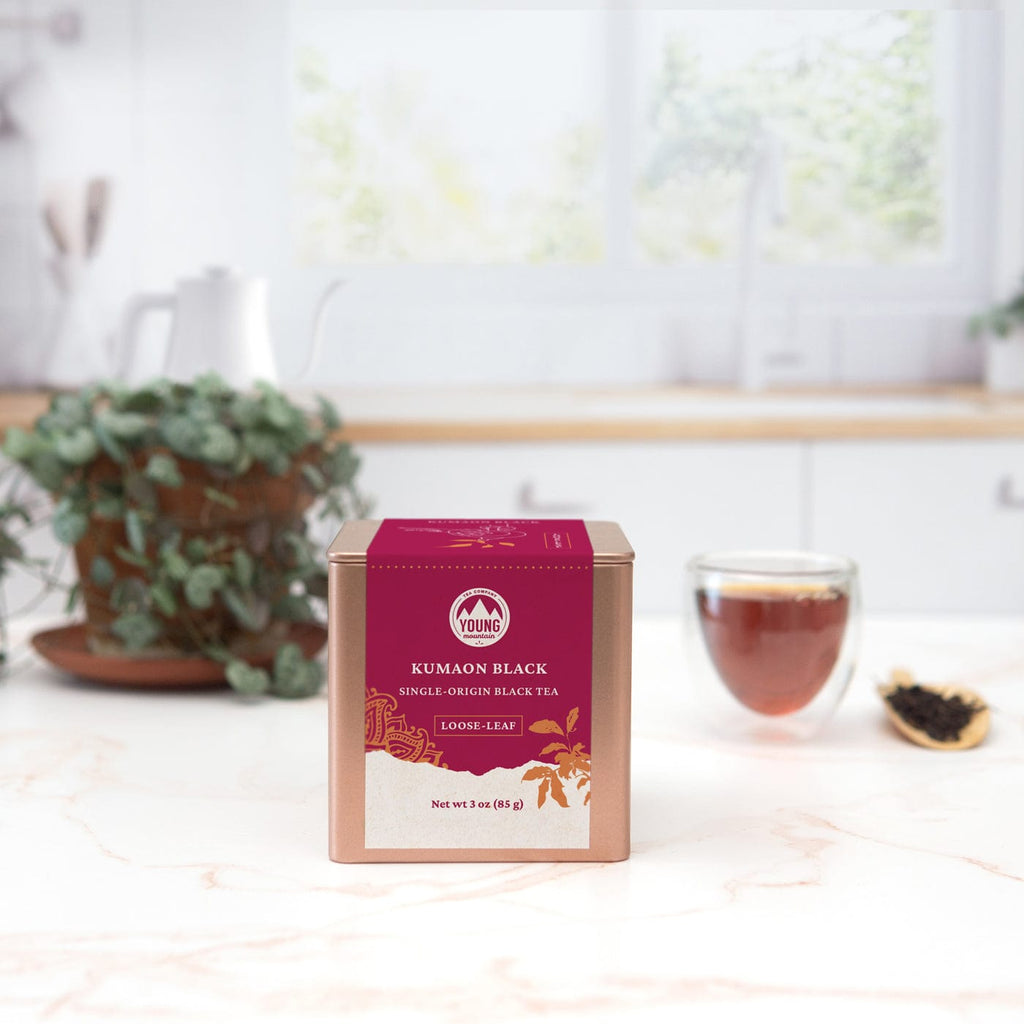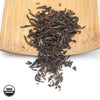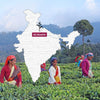




$17.99
Taste: Rich caramel & bittersweet cocoa
Origin: Kumaon, North Indian Himalayas
Tea Makers: Champawat Village
Infusion Suggestions:
Steep 1 0.5 Tbsp/2.5 g | 8 oz | 210° F | 3.5 min
Steep 2 8 oz | 210° F | 4 min
Certifications: USDA Organic
Contains Caffeine
Kumaon Black: A rich, smooth, and balanced organic black tea from one of India’s forgotten tea regions. The abundance of golden tips carry a glowing caramel sweetness under thick layers of bittersweet cocoa.
Tasting Notes: Thanks to a careful harvest of only the newest growth, this tea has a high presence of tea buds, one of the hallmarks of quality tea. When steeped, these buds release sweet layers of caramel. Difficult to oversteep, the tart, fruity body relaxes on the second and third infusions. Kumaon Black is versatile and approachable no matter how you make it: strong, light, or somewhere in between. Lovers of the classic black teas like English Breakfast and Assam Black will likely enjoy this tea.
Production: How is black tea made? Black teas go through a four-step process to become the tea that ends up in our cups: withering, rolling, oxidizing, and drying. The blackening of the tea occurs when the tea makers roll the leaf under pressure, breaking the cell walls and exposing the leaf’s internal compounds to oxygen. As the prized buds oxidize, they transform into the golden tips that contribute to the tea’s caramel and bitter-chocolate undertones. After the tea is crafted, tea makers are meticulous in hand-sorting Kumaon Black to achieve a specific bud-to-leaf ratio that gives this tea its unique taste.
Region: Nestled in the foothills of the mighty Himalayas, Kumaon lies 20 miles west of Nepal’s border and is one of the most remote tea regions in all of India. When the British introduced tea to India in the 1830s, they were enticed by the acidic and well-drained soils of Kumaon. The plant thrived on the mountainside slopes, but the region’s isolation made it difficult for the British to get the tea from the mountains to the port. In the 1920s, the British began to abandon or sell off the experimental Kumaon tea plots. This prompted a group of six families from Sri Lanka to move into the region and try to pick up where the British left off. All of those families left tea except one -- the Birkbecks -- who became the sole torchbearers of the Kumaon tea tradition. In the 1990s, the local government joined forces with the Birkbecks to help other local communities grow tea. This tea was all sent to the auction or sold locally until we entered the picture in 2015. Young Mountain Tea is proud to be the first US importer of Kumaon teas, and we are working with Birkbecks and other partners across the tea industry to help reintroduce Kumaon’s unique and exceptional teas. Read our blog about this region here.
Tea Makers: Desmond Birkbeck comes from the only family that continued to work in tea after the British abandoned Kumaon in the 1920s. Desmond grew up on his family’s remote tea garden, which is only accessible by a gravel road that twists through an oak forest with howler monkeys overhead. He fondly tells the story of the time he wrote a letter to the Tea Board of India when he was just 14 years old, requesting his family’s tea garden be granted the status that would allow it to sell in auctions. He left home for college and eventually received his master’s degree in biochemistry. After earning his degrees, he had a choice to either pursue a job in the US or return home to help his community through tea. He chose to return home, and today, he is a leading force behind organizing local tea farmers to grow and make quality tea.
Impact: In Kumaon, our relationship runs deepest. For more than a decade, we’ve worked side-by-side with Himalayan farmers to build a new model of tea, rooted in shared ownership, regenerative agriculture, and community leadership.
Together, Young Mountain Tea and local farmers co-own India’s first farmer-led specialty tea factory, launched in 2025. It’s the result of years of joint capacity building including training in organic cultivation, small-batch processing, and leadership development. Today, ~500 farmers in the Champawat region produce 30,000 lb of certified organic tea each year, and 90% of them are women earning their first-ever independent income through tea.
Farmers earn in two ways: first, by selling their harvest to the factory at 5x commodity rate; and second, by sharing in the factory’s future profits as co-owners. Alongside this economic transformation, we’re also restoring the land, running regenerative agriculture trials that compare biochar, home compost, and cow-dung fertilizers to revive once-abandoned hillsides with thriving organic tea bushes.
Our long-term goal is to develop the Kumaon Model as a blueprint for how tea can uplift Himalayan communities, beginning with 6,000 farmers across Kumaon and ultimately inspiring change throughout the global tea industry.
1% of all Young Mountain Tea sales directly support the factory’s launch and the farmers who will own it. Learn more.
Packaging: Our commitment to sustainability means we offer our teas in several types of packaging:

(Read our Kumaon blog: Cultivating Kumaon)